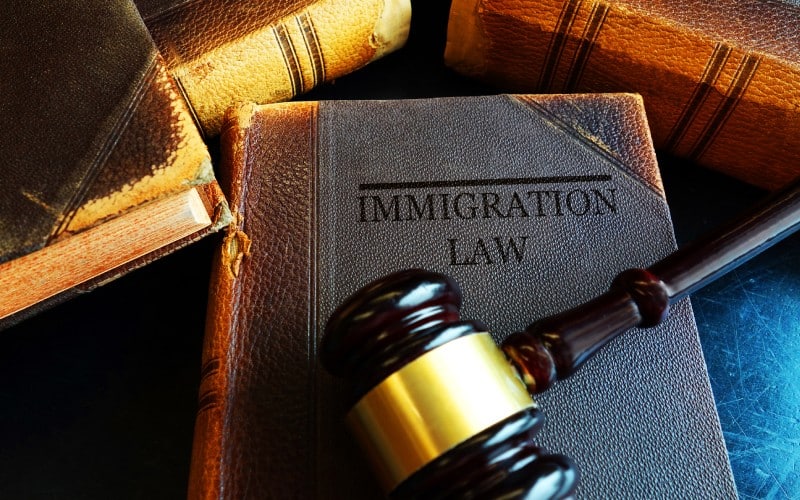If you are considering applying for refugee status in Canada, you should be aware of the importance of having valid grounds for your claim, providing evidence to support your claims, and having proper representation to present your case effectively.
What Are Valid Grounds?
Valid grounds are the reasons and circumstances that make you eligible as an individual for refugee protection under Canadian law. To be considered a refugee in Canada, you must meet the criteria outlined in the Immigration and Refugee Protection Act (IRPA).
Valid grounds for a refugee claim in Canada usually include a well-founded fear of persecution based on race, religion, nationality, membership in a particular social group, or political opinion. The fear of persecution must be serious. The risks you face must be personal, not a risk to the country’s general population. You need to demonstrate that your home government cannot protect you, and that you cannot reasonably and safely move to another region of the country.
What Is Representation?
Legal representation or the support of a certified immigration agency during the refugee determination process is crucial for navigating the complex legal procedures involved.
Having a qualified and experienced representative can help ensure your case is well presented, that relevant evidence is submitted, and that legal arguments properly support your claim. Representation can significantly improve the chances of a successful outcome, especially when preparing and representing you at a hearing.
Complexities in Supporting a Claim: Proving Valid Grounds and Creating a Compelling Narrative
Even if you have a valid fear of persecution and face personal risks, and could be eligible for a refugee claim, if you don’t provide enough evidence to support your claim or do not present your case properly, your claim could be rejected.
It’s essential to clearly and fully report on your situation. Provide a detailed account of your history, emphasizing specific events that demonstrate the genuine threat you face and how they qualify as valid grounds under Canada’s rules. Documentation, including witness statements, photographs, medical reports and other forms of proof, is necessary to support your claims.
Humanizing your narrative by sharing personal struggles, experiences, and fears can help decision-makers empathize with you. Creating a compelling narrative that delivers an emotional impact helps achieve this. However, it is equally crucial to stay factual, as credibility is a cornerstone of a successful refugee claim, and an overly emotional or inconsistent account can undermine credibility. A careful balance must be struck.
Benefits of Representation
Expert representatives know how to maintain this balance and understand the nuances of presenting a case successfully. They can help organize and present your evidence to maximize impact, while addressing potential weaknesses in your case to strengthen it overall. In addition, they are knowledgeable about, and stay current on, ever-changing immigration rules.

Consequences of Submitting a Refugee Case Without Valid Grounds
If you don’t present valid grounds, there are significant consequences you may face.
Refusal of Refugee Status
If you don’t demonstrate a well-founded fear of persecution based on recognized grounds, the Refugee Protection Division may refuse to provide you with refugee status. At this point, you may not be eligible for social assistance, depending on which province you are in.
Deportation
You may be subject to removal from Canada and be deported back to your home country, where you could again face the risks that caused you to seek refugee status.
Ineligibility for Other Immigration Programs
A failed refugee claim may impact your eligibility for other immigration programs in Canada. If you have been refused refugee status, you may find it more difficult to qualify for other immigration streams.
Detention
In some cases, you may be detained pending removal. Generally, however, this happens only when there is a concern that an individual won’t comply with the removal order.
Bar to Future Refugee Claims
If you were rejected for refugee status or your application was considered withdrawn or abandoned, you can’t apply again, even if circumstances have changed.
Options if You Have Been Rejected
Getting experienced representation is especially critical after a refugee claim has been denied.
You can appeal a negative decision with the Immigration Appeal Division, or depending on the situation, you may apply to the Federal Court of Canada for a judicial review. You may be able to apply for permanent residence on humanitarian and compassionate grounds.
You can also apply for a Pre-Removal Risk Assessment; however, you typically need to wait 12 months before you can apply for this assessment.

Get the Support of an Accredited Immigration Consultant
Given the serious consequences of a failed refugee claim, it is crucial to carefully prepare and present your case. An immigration consultant with experience in refugee law can significantly enhance the chances of presenting your case persuasively, while meeting all legal requirements for a greater chance of a positive outcome.
Not everyone is able to represent you and charge you; only Immigration consultants who have gained extra credentials.Oro Immigration has skilled, dedicated professionals with extensive experience helping refugees and others interested in immigrating to Canada. We can advise you on your options, make recommendations, and guide you through your process.


